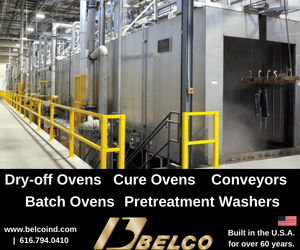Stripping Chromium
In your opinion, is there one best way to strip chromium prior to refinishing parts?
Q: In your opinion, is there one best way to strip chromium prior to refinishing parts? W.W.
A: In my opinion, there is no best way of stripping chromium. No matter how you attempt to strip, you’re faced with difficulties. The method that you choose will depend on whether you are attempting to strip decorative chrome or hard chrome. For decorative chromium, hydrochloric acid, reverse current in a strong alkaline solution or use of a powdered acid is usually used. If you are trying to remove hard chromium from steel, the preferred choice is usually reverse current in a suitable alkaline solution.
Reverse current requires that you make sure you have adequate agitation to prevent etching of parts. Some operators use a strong cleaner that contains a complexing agent such as sodium gluconate. Be aware that using a complexing agent may create problems in the waste treatment of spent solutions.
In the case of aluminum, the choice is usually a hot solution of sulfuric acid.
One last comment: There is no faster or better method of stripping chromium. My response when asked this question is simply this: Try to plate it correctly the first time so that the chromium does not have to be stripped.
Related Content
-
Innovation in Plating on Plastic
Plating on advanced plastics solution offers improved adhesion, temperature resistance and cost savings.
-
An Overview of Electroless Nickel Plating
By definition, electroless plating is metal deposition by a controlled chemical reaction.
-
Possibilities From Electroplating 3D Printed Plastic Parts
Adding layers of nickel or copper to 3D printed polymer can impart desired properties such as electrical conductivity, EMI shielding, abrasion resistance and improved strength — approaching and even exceeding 3D printed metal, according to RePliForm.
















